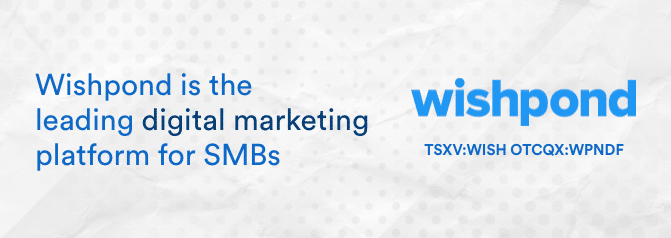

Education software providers have been shaking up not only the model for education itself (Khan Academy, for example), but also pointing up the possibilities for in-house improvement (Hootsuite University).
Vancouver’s Learndot, since stepping out of Vancouver’s GrowLab incubator 11 months ago following a name change, is about to emerge from restricted beta. Starting next week, anyone can sign up for their SaaS platform. The company has focused on a results-oriented education process aimed at enterprise clients. The ROI for its clients arrives more via outcomes than from checking “done” boxes, aiming more at streamlining the learning process with an emphasis on content and not so much on “compliance”.
Cantech Letter’s Terry Dawes talked to Learndot founder Paul Lambert yesterday.
Paul, how does Learndot differ from other learning solutions out there?
Concretely, Learndot combines a course creation tool with a delivery, quizzing and analytics platform. These are typically separate pieces of software, but combining them dramatically opens up the ability for anyone in an organization to create great learning content. It’s easy to start small, share with a few people, learn, and iterate. You don’t have to be an expert on workplace learning to create a great course. By using data, anyone can quickly develop learning content that works and that people actually want to take. We’ve adopted this iterative process from other disciplines that have seen dramatic improvements in efficiency through a similar change to be more iterative and data-driven (agile software development and lean manufacturing, for example). Moreover, we do a lot of research on learning best practices and implement a thousand small things, both “behind the scenes” and explicitly through guides built in to our content creation tools.
GrowLab is a fantastic program but they can’t make you find product/market fit or instantly make your business successful – it’s only 3 months and most start-ups take much, much longer than that to find fit, if they ever do.
You guys went through GrowLab a few years ago, which for a lot of start-ups is an accomplishment in itself. But it’s just the beginning of a longer process. What sort of challenges did you face as you moved from being a “promising start-up” into the world of actually growing a business?
GrowLab is a fantastic program but they can’t make you find product/market fit or instantly make your business successful – it’s only 3 months and most start-ups take much, much longer than that to find fit, if they ever do. When we graduated GrowLab, about 16 months ago, we were in the middle of our major pivot from university and casual learning to what we do now – learning for businesses. Pivots are extremely challenging – it means your original idea didn’t “work” as you intended. You basically have to throw away everything you’ve built, only your learning, experience and team come with you (if you’re lucky). So in a way, shortly after graduating GrowLab we were back near the beginning – except we had learned a lot about how to do it “properly” and had the financial runway for another “experiment”. Since graduating GrowLab, we did a ton of research (interviewing more than 100 companies face-to-face to learn about their challenges with learning), designed an entirely new product, rebranded, launched the product, and signed our first 10 paying client businesses. We would never have been able to do all this without the runway enabled by GrowLab, but there were countless challenges along the way.
What do you wish you’d done differently post-GrowLab? Were there a couple blind alleys you went down?
Honestly, we made the majority of our big mistakes before and during GrowLab. Since the “Learndot era”, the biggest mistake was made in going after big clients very early on when our product and team was not realistically able to serve them. This is a very dangerous game because large organizations can easily consume all a start-up’s resources, and often nothing can come of it. They have much, much more time for endless meetings than a start-up does. We should have listened sooner to the smaller, but eager customers that wanted our product “yesterday”, no matter how early it was. We did eventually, but it probably cost us a few months.
Your product focuses on educating a specific corporate demographic. Do you find there’s a greater willingness now for companies to encourage their employees towards an attitude of constant learning?
Paul: Yes, we definitely see a trend in many companies to build “cultures of learning”. Businesses realize that people are their greatest asset and that developing them is one of the best long-term investments you can make: it builds competitive advantage, higher functioning teams, stronger culture, and better employee retention. We also see large macro trends like the university crisis, the growing skills gap, shorter careers, and the continued shift to a more service-based economy all put increasing pressure on businesses to train and develop employees. In the future, the certifications you get as an adult over the course of your career will be more important than the single degree you got from school as a very young adult.
Is there a little resistance from people who believe that learning is for school, not work?
Not really – but this may be selection bias, our customers are pioneers who want to be ahead-of-the-curve in developing cultures of learning. That said, we’ve never encountered this objection even in our cold outreach.
What are the challenges you see for SMEs with regard to education? We see larger, forward-thinking companies trying neat things (like Hootsuite University, for example). But is education quite often lumped in with copywriting and proofreading, as a skill that occurs to most business leaders as an afterthought?
The traditional view of training as a “checkmark” for compliance or other reasons does, perhaps, lead it to being an afterthought for business leaders. But as mentioned above, that mindset is changing quickly. The companies that are realizing education can be used to deliver long-term, real business results are developing a competitive advantage over the competition. We believe all organizations will benefit by nurturing a culture of learning, but people-powered businesses of all sizes see the greatest impact. This includes most service-based businesses, retailers, sales teams, or any industry where employee retention is a key metric.
What does Learndot have planned for next week?
Learndot is coming out of restricted beta, making it possible for anyone to sign up for our product entirely through our website. We are also launching new pricing plans, including a free plan for up to 5 active learners.
Leave a Reply
You must be logged in to post a comment.




 Share
Share Tweet
Tweet Share
Share




Comment